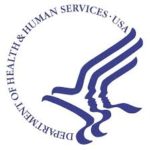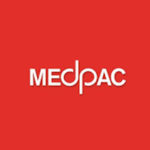The following is the latest health policy news from the federal government for January 12 – 25. Some of the language used below is taken directly from government documents.
 Department of Health and Human Services – Funding Models
Department of Health and Human Services – Funding Models
- HHS has announced a new model to test approaches for addressing the behavioral and physical health and health-related social needs of people with Medicaid and Medicare. The goal of the Innovation in Behavioral Health Model (IBH) is to improve the overall quality of care and outcomes for adults with mental health conditions and/or substance use disorders by connecting them with the physical, behavioral, and social supports needed to manage their care. The model also will promote health IT capacity-building through infrastructure payments and other activities. Under the model, which will be tested by CMS’s Center for Medicare and Medicaid Innovation, community-based behavioral health practices will form interprofessional care teams consisting of behavioral and physical health providers and community-based supports. The model will launch in the fall of 2024 and is expected to operate for eight years in up to eight states. CMS will release a notice of funding opportunity for the model this spring. Learn more about the model from the following resources:
- HHS’s Advanced Research Projects Agency for Health (ARPA-H) has launched the program “Platform Accelerating Rural Access to Distributed and Integrated Medicare Care” (PARADIGM) as part of an effort to drive breakthroughs to improve health outcomes for all Americans and combat the dire health disparities prevalent in rural regions by enhancing early detection and management in rural communities. PARADIGM aims to enhance access to hospital-level care in rural communities by creating mobile health units that would function as extensions of rural hospitals. These units would be supported by software that connects on-board and remote medical devices with any electronic health record system. PARADIGM’s solicitation for proposals focuses on five technical areas: a decentralized approach to hospital-level care; care delivery platform integration; medical IoT (internet of things) platform; ruggedized CT scanner; and intelligent task guidance. ARPA-H anticipates making multiple awards, with award amounts to depend on the quality of the proposals and the availability of funds. Learn more about PARADIGM and how to pursue funding from the following resources:
Abstracts are due by February 27 and full proposals are due by April 26. ARPA-H anticipates that applicants will need to create teams to achieve PARADIGM’s goals, so prospective applicants are encouraged to form teams with varied technical expertise to submit a proposal. To facilitate this process, ARPA-H has created a web page where prospective team participants can share their profiles and learn more about other interested parties. Find that page here. Also, ARPA-H will hold a webinar for prospective applicants on February 12. Go here to register to participate.

- CMS has issued its interoperability and prior authorization final rule, setting requirements for Medicare Advantage organizations, Medicaid and the Children’s Health Insurance Program (CHIP) fee-for-service programs, Medicaid managed care plans, CHIP managed care entities, and issuers of Qualified Health Plans offered on the federal health insurance exchange to improve the electronic exchange of health information and prior authorization processes for medical items and services. Together, these policies seek to improve prior authorization processes and reduce the burden on patients, providers, and payers. Among other changes introduced by the new rule, beginning primarily in 2026 affected payers will be required to send prior authorization decisions within 72 hours for expedited (urgent) requests and seven calendar days for standard (non-urgent) requests for medical items and services. For some payers this new time frame for standard requests cuts current decision time frames in half. The rule also requires all affected payers to include a specific reason for denying prior authorization requests, which CMS believes will help facilitate resubmission of requests or appeals when needed. Affected payers will be required to publicly report prior authorization metrics. The rule also includes new technical standards for interoperability. Learn more about the new rule from this CMS news release; a CMS fact sheet; and this pre-publication version of the final rule.
- CMS has posted a bulletin about January updates of the Medicare outpatient prospective payment system. Find that bulletin here. The changes it describes took effect on January 1.
- CMS has published a bulletin outlining billing requirements for intensive outpatient program services for federally qualified health centers (FQHCs) and rural health clinics. Find the bulletin here. The requirements took effect on January 1.
- CMS has published a bulletin with its April 2024 quarterly update of HCPCS codes used for skilled nursing facility consolidated billing. Find the bulletin here. The changes described in the bulletin take effect on April 1.
- CMS has published a bulletin on how to use office and outpatient evaluation management visit complexity add-on code G2211. Find the bulletin here. The changes described in the bulletin will be implemented on February 19.
- CMS has posted a bulletin on refillable DMEPOS documentation requirements. Find the bulletin here. The requirements will be implemented as of February 19.
- CMS has released data collected between November 27, 2020 and March 30, 2023 for its Acute Hospital at Home program. Learn more about the data and how to obtain it from this CMS fact sheet.
- Last October, CMS published two health equity confidential feedback reports on quality reporting to post-acute care providers: a Discharge to Community Health Equity Confidential Feedback Report and a Medicare Spending Per Beneficiary Health Equity Confidential Feedback Report. Now, to answer questions and provide methodological information about these reports, CMS has posted FAQ and methodology reports. Find the documents on the respective quality reporting training web pages for home health, inpatient rehabilitation facilities, long-term-care hospitals, and skilled nursing facilities.
- CMS has posted a new public use file on socio-demographic and health characteristics of Medicare beneficiaries living in the community by dual eligibility status in 2021. This public use file uses data from the Medicare Current Beneficiary Survey and contains estimates on socio-demographic characteristics, functional limitations, chronic conditions, mental health, and oral health of people with Medicare living in the community as well as those with both Medicare and Medicaid. Go here for more information about the data and a link to the data itself.
- CMS has contracted for the development of a measure of emergency care capacity and quality that will be an electronic clinical quality measure (eCQM) determining emergency department care capacity and quality. Go here for information about the measure and to view its specifications. Interested parties may complete a survey on the proposed measure; find that survey here. Comments also may be submitted via email to cmsemergencycarecapacity@yale.edu. The deadline for completing the survey or submitting comments is February 16.
 Department of Health and Human Services
Department of Health and Human Services
- HHS and CMS will launch a series of actions to educate the public about their rights to emergency medical care and to help support efforts of hospitals to meet their obligations under the Emergency Medical Treatment and Labor Act (EMTALA). As part of this comprehensive plan, HHS and CMS will:
- Publish new resources on CMS’s website to help individuals understand their rights under EMTALA and the process for submitting complaints if they are denied emergency medical care.
- Partner with hospital and provider associations to disseminate training materials on providers’ obligations under EMTALA.
- Convene hospital and provider associations to discuss best practices and challenges in ensuring compliance with EMTALA.
- Establish a dedicated team of HHS experts who will increase the agencies’ capacity to support hospitals in complying with federal requirements under EMTALA.
Learn more from this HHS news release and the new CMS informational resources.
- HHS has announced a series of new actions to protect and expand access to contraception. The actions include a letter from HHS Secretary Becerra to Medicare plans, health insurance issuers, and state Medicaid and CHIP programs about upholding their obligations under federal law; a new FAQ addressing how payers can ensure compliance with the requirement under the Affordable Care Act to cover contraception without cost-sharing; and updates to the Medicare Part D formulary clinical review process for plan year 2024 to include additional types of birth control. Learn more from this HHS news release, which includes Secretary Becerra’s letter, and the new FAQ.
- HHS’s Office for Civil Rights has issued guidance to hospital and long-term-care facility administrators reminding their organizations of their independent obligations under CMS regulations to ensure that facility visitation policies, including during a public health emergency, do not unlawfully discriminate on the basis of religion and reminding them of their obligation not to discriminate on other protected bases under federal civil rights laws against patients or other individuals receiving care. Learn more from this HHS news release and find the guidance here.
- HHS and the Justice Department have issued a joint letter to state Medicaid administrators urging them to ensure, in accordance with the Americans with Disabilities Act, that their Medicaid programs enable people who have both hepatitis C and substance use disorder to obtain hepatitis C medications called direct-acting antivirals. The letter notes that Medicaid recipients with hepatitis C are legally entitled to hepatitis C treatments that usually cure the disease. Learn more from this news release and the HHS/Justice Department letter to state Medicaid programs.
- HHS has updated its poverty guidelines for 2024. The guidelines are used to determine eligibility for Medicaid and other federal programs. Find the updated guidelines and learn more about their use from this HHS regulatory announcement. CMS has sent a memo to state Medicaid and CHIP programs about these updated guidelines; find that memo here.
- The CDC has improved the nursing home reporting process for COVID-19 data into the National Healthcare Safety Network but challenges remain, HHS’s Office of the Inspector General (OIG) has concluded in a new report. Go here for a summary of the report, its recommendations, and a link to the complete report.
- HHS’s OIG has updated its schedule of planned audits and reviews for the month of January. Find its updated workplan here.
- “The impact of COVID-19 on healthcare coverage and access in racial and ethnic minority populations in the United States,” a paper written by staff of HHS’s Office of Minority Health and the Centers for Disease Control and Prevention, describes changes in patterns occurring within a given area during a set amount of time in health insurance coverage, health care access, and reasons for non-insurance among racial/ethnic minority populations in the U.S. before and during the COVID-19 pandemic using four national survey datasets. The paper’s key findings include that in general, racial and ethnic disparities in health insurance coverage and health care access worsened during the pandemic; although coverage and access improved over time, pre-COVID disparities persisted, with African American and Hispanic/Latino populations the most affected by insurance loss and reduced access; and cost, unemployment, and eligibility drove non-insurance before and during the pandemic. Find the paper here.
- HHS has published voluntary health care-specific “Cybersecurity Performance Goals” to help health care organizations prioritize implementation of high-impact cybersecurity practices. The goals are designed to better protect the health care sector from cyberattacks, improve response when events occur, and minimize residual risk. The goals include both essential goals to outline minimum foundational practices for cybersecurity performance and enhanced goals to encourage adoption of more advanced practices. Find the new cybersecurity goals document here.
- HHS’s Office of Information Security and Health Sector Cybersecurity Coordination Center have published a presentation on ransomware in the health care field. The presentation is written for a non-technical audience. Find it here.
- The same agencies within HHS have posted a health sector alert about the possible threat of unauthorized access for health care and public health organizations that use the remote access tool ScreenConnect. Find the alert here.
- HHS’s Health Resources and Services Administration (HRSA) is seeking nominations of candidates to consider for appointment to the National Advisory Council on Nurse Education and Practice, which provides advice and recommendations to the Secretary of HHS on policy, program development, and other matters of significance concerning the activities under Title VIII of the Public Health Service Act, including the range of issues relating to the nurse workforce, education, and practice improvement. Learn more about the council, its work, the role and expectations of council members, and how to submit nominations from this regulatory notice. There is no deadline for submitting applications.
- HHS has published a series of short case studies on how providers and patients can use virtual visits to improve access to care. Find them here.
- HHS’s Agency for Healthcare Research and Quality (AHRQ) has updated its research priorities. Find the updated priorities here.
 No Surprises Act
No Surprises Act
- HHS has reopened the comment period for the proposed rules entitled “Federal Independent Dispute Resolution Operations” that appeared in the November 3, 2023, issue of the Federal Register. The comment period for the proposed rules, which closed on January 2, 2024, is reopened from January 22 to February 5, 2024. In the proposed rules, HHS and other federal agencies proposed requirements for the federal independent dispute resolution (IDR) process established under the No Surprises Act, including new requirements for disclosing information along with the initial payment or notice of denial of payment for certain items and services subject to the surprise billing protections in the No Surprises Act and when initiating the IDR process and the provision of certain claim adjustment reason codes and remittance advice remark codes with paper or electronic remittances. In addition, those proposed rules would define bundled payment arrangements and would amend certain requirements related to the open negotiation period, initiation of the IDR process, eligibility determinations, batched disputes, extensions due to extenuating circumstances, selection of the certified IDR entity, and the collection of administrative fees and certified IDR entity fees. Finally, the proposed rules would require plans and issuers to register in the federal IDR portal. Learn more, including about the changes HHS proposed and how to submit comments, from this regulatory announcement.
- HHS has published corrections of technical errors that appeared in the December 21, 2023 final rule titled “Federal Independent Dispute Resolution (IDR) Process Administrative Fee and Certified IDR Entity Fee Ranges.” Find the corrections in this regulatory notice.
HHS Newsletters
- CMS – MLN Connects – January 18 and January 25
- AHRQ News Now – January 16 and January 23
- HRSA eNews – January 18
Centers for Disease Control and Prevention
The CDC has published a bulletin with information about errors in the administration of RSV vaccines to young children and pregnant people. Find the bulletin here.
 Medicare Payment Advisory Commission (MedPAC)
Medicare Payment Advisory Commission (MedPAC)
- MedPAC and MACPAC have published their annual data book that presents information on thedemographic and other personal characteristics, expenditures, and health care utilization of individuals who are dually eligible for Medicare and Medicaid coverage. Find the data book here.
- Members of the Medicare Payment Advisory Commission met recently in Washington, D.C. After hearing presentations on the various Medicare payment systems and discussing the adequacy of current Medicare reimbursement, MedPAC’s commissioners voted to recommend the following changes in 2025 Medicare payments.
- Inpatient and outpatient services – an update provided for in current law plus 1.5 percent and a shift to a safety-net index policy that would pay safety-net hospitals another $4 billion.
- Physicians and other health professionals – an increase of 50 percent of the Medicare economic index and introduction of an add-on payment for services provided to low-income Medicare patients.
- Inpatient rehabilitation hospital services – a payment reduction of five percent.
- Skilled nursing facilities – a payment reduction of three percent.
- Home health services – a payment reduction of seven percent.
During the two-day meeting MedPAC’s commissioners also received status reports from their staff on Medicare Part D, ambulatory surgical centers, and the Medicare Advantage program and reviewed policy options for standardized benefits in Medicare Advantage plans. For a summary of the issues and MedPAC actions and for links to the presentations delivered during the meeting go here. Find a transcript of the meetings here.
- The federal government could pay Medicare Advantage plans $88 billion more than it should in 2024, MedPAC has concluded in a new report. Most of the overpayments can be attributed to upcoding and favorable selection of healthy members, the report found. Go here for a slide presentation of the report.
Medicaid and CHIP Payment and Access Commission (MACPAC)
MACPAC has published the results of an analysis of access to behavioral health care and beneficiary satisfaction with access to those services broken down by race and ethnicity and on whether those beneficiaries are insured by Medicaid or private payers. Go here for an overview of the brief and a link to the complete document.

CMS – Long-Term Services and Support Open-Door Forum – January 30
CMS will hold a long-term services and supports open-door forum on Tuesday, January 20 at 1:00 (eastern). The focus of the forum will be a national overview of state home- and community-based (HCBS) spending under section 9817 of the American Rescue Plan. Go here for further information about the forum and how to submit questions and register to participate.
HHS – Health Resources and Services Administration – Organ Transplantation Affinity Group Webinar – January 31
HRSA’s Organ Transplantation Affinity Group will hold the first in a series of webinars on Wednesday, January 31 at 2:00 (eastern). The purpose of the webinars is to gain feedback from interested parties on transplant-related issues. Go here to learn more about the purpose of the webinar and what the Organ Transplantation Affinity Group seeks to accomplish and register to participate.
HHS – Office of Climate Change and Health Equity – Webinars on Taking Advantage of Provisions in the Inflation Reduction Act – February 1 and 8 (and others)
HHS’s Office of Climate Change and Health Equity is holding a series of webinars to help health care providers, and especially safety-net organization, take advantage of the tax credits, grants and other supports made available by the Inflation Reduction Act, which creates opportunities for health sector organizations to invest in clean energy, building efficiency, infrastructure resilience, and more. The next webinars will be held on Thursday, February 1 and Thursday, February 8, with additional events scheduled on February 22, March 7 and 21, and April 4 and 18. Separate break-out sessions will be held for essential hospitals, community health centers, and rural providers. Go here to learn more about the webinar series, future events, and the break-out sessions; go here for a recording of a November briefing on Inflation Reduction Act resources available to health care providers; and go here to register to participate.
CMS Office of Minority Health – Coverage to Care Initiative Webinar – February 6
CMS’s Office of Minority Health will host a webinar to help inform partners about the latest updates and offerings from its Coverage to Care initiative on Tuesday, February 6 at 1:00 (eastern). The webinar will offer information about the availability of Coverage to Care resources, including where to find them and how organizations can begin/continue to use them, updates to Coverage to Care resources, and perspectives from one of the program’s partnering organizations. Go here to register to participate.
CMS – Medicare Cost Report E-Filing System Webinar – February 14
CMS will hold a webinar on the Medicare cost report e-filing system on Wednesday, February 14 at 1:00 (eastern). The webinar will offer information about new and upcoming functionality for Medicare Part A cost reports in the Medicare cost report e-filing system; the target audience is Medicare Part A providers and entities that file cost reports for providers. Learn more from this notice and go here to register to participate.
HHS – Agency for Healthcare Research and Quality – Integrating Patient-Reported Outcomes into Practice – February 27
The Agency for Healthcare Research and Quality (AHRQ) will hold a webinar on integrating patient-reported outcomes into practice on Tuesday, February 27 at 3:00 (eastern). During the webinar, AHRQ will host presentations of research findings on how best to use patient-reported outcomes for patients with varying health conditions and how to scale and spread patient-reported outcomes use within health systems. Go here to learn more and register to participate.
MedPAC – Commissioners Meeting – March 7-8
MedPAC’s commissioners will hold their next public meeting on Thursday, March 7 and Friday, March 8. An agenda and directions on how to participate in the meeting is not yet available but when that information is announced it will be posted here.
CMS – Health Equity Conference – May 29-30
CMS will hold its second annual CMS Health Equity Conference on Wednesday, May 29 and Thursday, May 30. The free, hybrid conference will be held in person in Bethesda, Maryland and available online for virtual participation and involve health equity leaders from federal and local agencies, health provider organizations, academia, community-based organizations, and others. Conference participants will hear from CMS leadership on recent developments and updates to CMS programs; explore the latest health equity research; discuss promising practices and creative solutions; and collaborate on community engagement strategies. CMS is now accepting proposals for breakout session speakers and poster presenters. Learn more from the conference web page.

